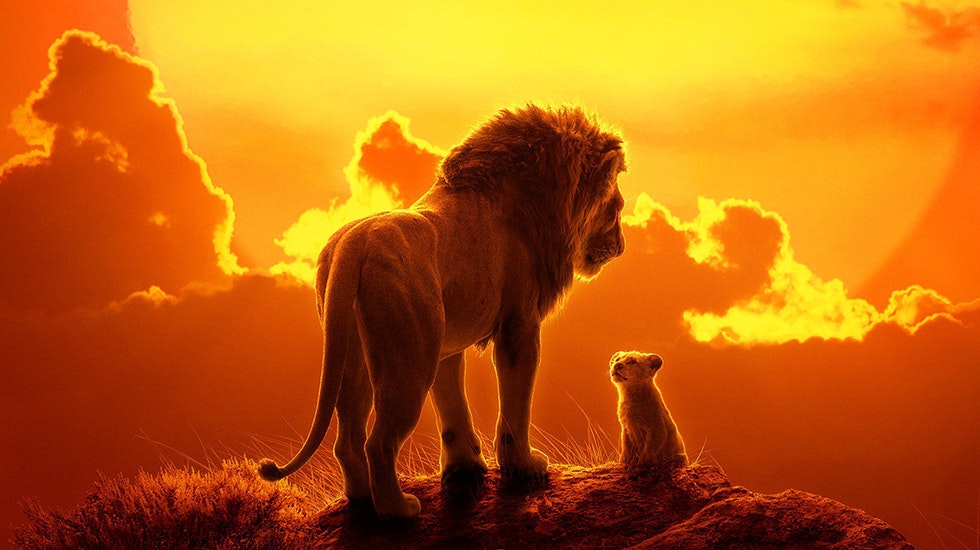TL;DR
Disney's latest live-action remake, The Lion King, meticulously recreates the beloved 1994 animated classic with stunning photorealistic CGI. While some find it a near shot-for-shot copy, the timeless story of Simba's journey, featuring a stellar voice cast like Donald Glover and Beyoncé, remains emotionally resonant and visually spectacular. It’s a faithful, albeit perhaps unnecessary, retelling that aims to captivate a new generation. Discover if this CGI masterpiece lives up to the original’s magic – dive into our full review!
Disney’s strategy of producing live-action adaptations of their animated classics is now well-established. Following the release of Aladdin earlier this year, and prior to the release of Mulan (2020) and The Little Mermaid, comes Lejonkungen (The Lion King).
For many on our editorial team, the 1990s represent a high point for Disney animated features. This may reflect our average age, but it is undeniable that Disney achieved significant animated success during that decade. Under Jeffrey Katzenberg’s leadership, the company received an Oscar nomination for Best Picture in 1992 for an animated film (Beauty and the Beast, which also received a “live-action film” adaptation in 2017). Simultaneously, they produced a string of musical hits, including a successful Broadway adaptation of The Lion King, directed by Julie Taymor, who serves as an executive producer on this remake. The Lion King held the position of Disney’s most beloved and financially successful animated film for a considerable time, before being surpassed by Frost (Frozen) in 2013.
The Lion King centers on Simba (Donald Glover), the lion cub and heir to the throne of Mufasa (James Earl Jones) and Sarabi (Alfree Woodard). Simba is manipulated by his uncle Scar (Chiwetel Ejiofor), who seeks to usurp the throne with the aid of his hyena allies (including Keegan-Michael Key). During his journey, Simba encounters Timon & Pumbaa (Billy Eichner & Seth Rogen), a meerkat and warthog duo, embarking on a new path where he must embrace his identity and destiny.
The narrative of The Lion King possesses a timeless quality, drawing upon classic themes and dramatic elements: envy, revenge, love, friendship, the realization of interconnectedness, and the hero’s journey to save those in need. Hollywood has consistently excelled in this genre, employing strong storytelling techniques and messianic narratives to create beloved film classics. Examples include sci-fi landmarks like The Matrix, dramas like The Green Mile, and historical epics like Braveheart, as well as the Harry Potter film adaptations, to name a few.
The Lion King (2019) is marketed as a live-action adaptation, but with the exception of some aspects of the African environment, it is entirely computer-generated. The animals are rendered using stunning visual effects, prompting a sense of awe and admiration for the realistic depiction of the newborn Simba. Director Jon Favreau previously garnered acclaim for his live-action version of The Jungle Book (2016). However, as The Lion King features no human characters, it presents a pure fable, populated by photorealistic, talking wild animals. It’s likely that next year’s Oscar for visual effects will be awarded to The Lion King.
This remake operates on a different level than Favreau’s prior Disney adaptation – which, ironically, initiated Disney’s current trend of live-action remakes. Rather than taking artistic liberties, as The Jungle Book did in creating a darker narrative, this adaptation appears to be a near shot-for-shot recreation. It seems that Favreau and his team have meticulously copied the original, with perhaps 90% of the film representing a direct transfer from hand-drawn animation to computer animation (as exemplified in the sequence below). Not since Gus van Sant’s remake of Psycho has there been a film so faithful to its source material in terms of imagery and scene composition. Given the original’s status as a masterpiece, this approach is not inherently problematic. While there are some new elements and scenes, they are relatively minor. For those familiar with the original, much of the film evokes a sense of recognition and appreciation for the faithful recreation.
While engrossed in the unfolding narrative, it becomes apparent that The Lion King 2019 is not primarily targeted at those who remember the original. However, a viewing is still recommended, as the story retains its emotional impact and entertainment value. Following a preview screening in Stockholm, several young women in their mid-20s expressed their enthusiasm for the film’s touching and compelling story. Having been born around the time of the original’s release, they may have missed it entirely. For them, and for others unfamiliar with or too young to remember The Lion King 1994, this new adaptation offers a fresh and potentially magical experience, enhanced by its impressive visual presentation.
The voice cast (in the original version we reviewed) is almost entirely new, with the exception of James Earl Jones, whose iconic voice as Mufasa remains as resonant as it was decades ago. Simba is voiced by Donald Glover (and John Lundvik in Swedish), Nala by Beyoncé, Zazu by John Oliver, and Pumbaa by Seth Rogen, who is well-suited to the warthog character. Chiwetel Ejiofor delivers a solid performance as Scar, echoing the menacing presence of Idris Elba’s Shere-Khan in The Jungle Book. While there are some dark, exciting, funny, and sad scenes, the film remains family-friendly. The film received a PG-13 rating.
Amidst contemporary sociopolitical discourse, The Lion King has faced criticism from some quarters for allegedly presenting a “fascistoid” fantasy, where the lions embody nobility and strength, and the hyenas represent scavenging outsiders. Such interpretations are subjective, although a more relevant comparison would be to Shakespeare’s Hamlet. Favreau seems to acknowledge this parallel in his film version. Ultimately, the story revolves around universal themes: family, love, loss, self-discovery, friendship, and destiny. As Mufasa states, “we do not own the earth, we protect and govern it for the benefit of all living creatures and maintain the balance in the circle of life, which we are all part of.” This message resonates with contemporary concerns.
The Lion King 2019 is, as previously suggested, a largely unnecessary remake. Revisiting the original film carries no disadvantages, except perhaps for those with an aversion to animation or the misconception that animation is solely for children. The Lion King (2019) remains an animated film, albeit presented with a live-action aesthetic. Regardless of its presentation, the story itself is compelling and stands to delight, entertain, and move a new generation of viewers. Despite mixed reviews (though positive reviews are expected), the film is poised to become another major financial success for Disney, which has already released the top three highest-grossing films of the year (Avengers: Endgame, Captain Marvel and Aladdin) and may add a fourth to this list (potentially surpassing Aladdin and perhaps even Captain Marvel). With its consistent quality, strategic acquisitions, and astute commercial decisions, Disney remains the dominant film studio, a position that will be further solidified with the launch of the Disney+ streaming service and the integration of Fox’s extensive catalog.
Recommendation: Bring your family to see The Lion King 2019 in theaters. For those who haven’t seen it in perhaps 25 years, it promises to be a welcome reunion, while for children, it will be a memorable cinematic experience. Afterwards, consider revisiting the animated classic (ideally in 4K UHD) and even The Lion King 2: Simba’s Pride, which offers a continuation of the story.
Hakuna Matata, Disney – Hakuna Matata!

